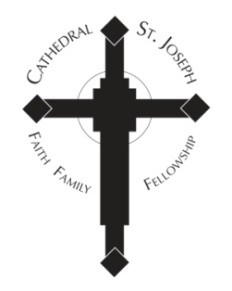The Sacrament of Baptism opens the door to a new life in Jesus Christ... a life that goes beyond our death and into the life of heaven after our death.
Baptism is the sacrament of salvation: an encounter with God that cleanses us from sin and makes us true children of God, sharing in his very own divine life.
This great gift is offered to all who believe and to the children of families of faith. Since her earliest days, the Church has baptized adults and children because it is the only ordinary way God has revealed that we may receive the grace of salvation through this sharing in the death and resurrection of Jesus Christ as St. Paul teaches in Romans chapter 6:
We were buried therefore with him by baptism into death, so that as Christ was raised from the dead by the glory of the Father, we too might walk in newness of life… if we have died with Christ, we believe that we shall also live with him… So you also must consider yourselves dead to sin and alive to God in Christ Jesus.
(Romans 6:3, 8, 11)
Baptism is the first of the three Sacraments of Initiation. The other two are Confirmation and Holy Communion (Eucharist). Children typically receive the other Sacraments of Initiation after reaching age 7 and before age 16.
Baptism of Infants and Children (under age 7)
Godparents
It is an ancient custom and also a requirement of Church law that each new Christian have at least one sponsor, traditionally called a godparent, who “together with the parents presents an infant for baptism. A sponsor also helps the baptized person to lead a Christian life in keeping with baptism and to fulfill faithfully the obligations” of this new life. (Code of Canon Law, 872)
Church law and our diocese provide guidelines for the qualifications to serve as a godparent. The reason for these requirements is to ensure that the new Christian will have the support they need from their sponsor who will promise to pray for them and help them as they prepare for other sacraments and seek to live out their baptism throughout their lifetime.
Baptism of Adults (and children age 7 and up)
Following the spread of Christianity in the first few generations after the resurrection of Jesus, the Catholic Church developed a process to prepare adults for entry into the Church through the Sacraments of Initiation: Baptism, Confirmation, and Holy Communion (Eucharist). Today, the Church calls this process the Rite of Christian Initiation of Adults or RCIA. Through this process, those who express interest in becoming Catholic are welcomed into a special community within the parish to learn about the teachings of Jesus and his Church, to have their questions answered, learn about the new life in Christ offered by baptism, and prepare for the reception of the Sacraments.
Please contact us to get started! Nothing more than an interest in learning more about Catholicism is needed to begin. There is no pressure, only welcome and support as you freely journey towards union with Christ and his Church.
Children who have reached age 7 and have not yet been baptized are considered “adults” with consideration for the reception of sacraments. This is because - at age 7 - they are able to take personal responsibility for their sins and are able to make a profession of faith on their own. A special preparation process is provided for them. Parents, please contact us so that we can help you get started. It is never too late to baptize your children.

